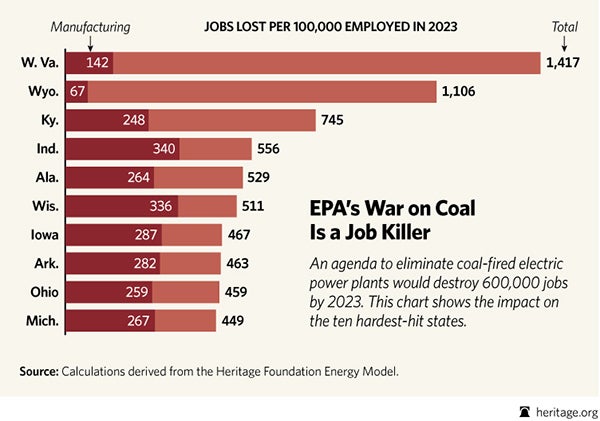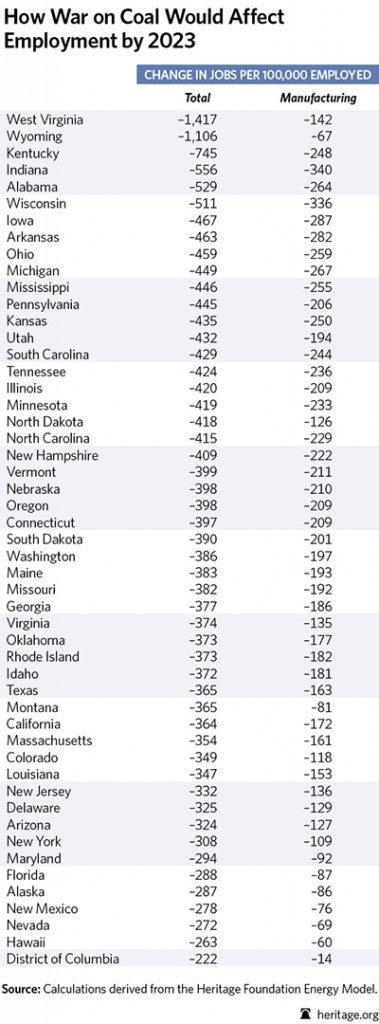The combination of new Environmental Protection Agency (EPA) rules could likely end coal-fired power in the next 30 years. While the coal industry will be directly affected by the EPA’s proposal, many other industries will also feel the impact, and the economic pain will spread across the country.
If the EPA succeeds in their latest effort to regulate greenhouse gas emissions, the rule will effectively ban the construction of new coal-fired power plants. In addition, next year the EPA will be issuing rules governing existing coal-fired power plants.
Many analysts, including those at the Department of Energy, expect natural gas to replace a significant portion of coal-fired electric power over the next several decades even without the new rules. This shuttering of coal plants is built into the baseline of Heritage’s analysis. The employment changes shown here are due to the war on coal, which would close cost-competitive coal plants.
In recent research, The Heritage Foundation found that in 10 years, employment would fall by 600,000 jobs as a result of higher energy costs. Manufacturing could lose up to 270,000 jobs and the overall gross domestic product would decrease by $2.23 trillion if the Obama Administration follows through with its war on coal.
Breaking down the economic impact at the state level, as the Heritage paper does, shows that much of the country will suffer and America’s manufacturing base will take a huge hit. In fact, manufacturing job losses account for 50 percent or more of total job losses in seven of the 10 hardest hit states.
In addition to the three states whose industries are most heavily based on coal production, the effects of restricting the coal industry would spill over to the rest of the country. Higher energy costs and more expensive goods, along with the decrease in manufacturing jobs, will take a toll on middle-class Americans.
The loss of manufacturing jobs per 100,000 employed in Indiana and Wisconsin exceeds the number of jobs lost in the coal-mining industry in Kentucky, a state that heavily relies on coal production. In Indiana, coal mining amounts to only 7 percent of the total number of jobs lost per 100,000 employed; that ratio is only 4 percent in Ohio.
For Ohioans, this means that 96 percent of the decrease in employment resulting from the EPA’s proposed regulation will come primarily from the effects of higher energy costs. States like Michigan, Ohio, Indiana, and Wisconsin are still undergoing a sluggish recovery from the financial crisis. Killing coal-fired power will only exacerbate the situation.
The Administration’s war on coal will inflict economic casualties all over the country. Congress should act to prevent federal agencies from regulating greenhouse gas emissions, especially regulations that create unachievable mandates for non-toxic, colorless, odorless CO2.





























